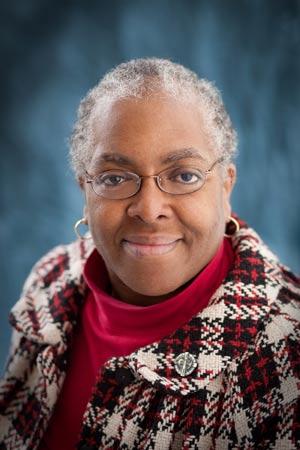MILWAUKEE – Churchgoers gathered Saturday, Nov. 5, for a forum that included a frank discussion about a deadly disease and a call to respond lovingly and proactively.
 Sr. Shawnee Daniels-SykesThe Milwaukee Archdiocese’s Black Catholic Ministry designated Saturday “A Day of Reflection” for HIV and AIDS, a disease that has claimed nearly 30 million lives worldwide since the beginning of the epidemic, according to The Foundation for AIDS Research, a nonprofit organization dedicated to ending the global AIDS epidemic through innovative research. All Saints Catholic Church on the city’s north side hosted the interdenominational event.
Sr. Shawnee Daniels-SykesThe Milwaukee Archdiocese’s Black Catholic Ministry designated Saturday “A Day of Reflection” for HIV and AIDS, a disease that has claimed nearly 30 million lives worldwide since the beginning of the epidemic, according to The Foundation for AIDS Research, a nonprofit organization dedicated to ending the global AIDS epidemic through innovative research. All Saints Catholic Church on the city’s north side hosted the interdenominational event.
At the forum, attention was given to the impact of HIV and AIDS in the black community. School Sister of Notre Dame Shawnee Daniels-Sykes, assistant professor of theology and bioethics at Mount Mary College, was keynote speaker.
HIV and AIDS are topics that generally have been taboo in Catholic parishes and other denominational houses of worship in American culture, she said. For true transformation, Sr. Shawnee and other attendees at the forum suggested the veil must be lifted to achieve results for an epidemic that has been spinning out of control.
“The church is supposed to be a sanctuary,” said Sr. Shawnee, who called on Catholics and other religious groups to address the epidemic, head on. “We’re supposed to be loving.”
Using bioethics – the study of controversial ethical procedures brought on by advances in biology and medicine – Sr. Shawnee presented research and commentary on the disease and its impact on one of the largest minority populations.
According to a 2011 Centers for Disease Control and Prevention report, reflecting 2009 statistics, more than 23,000 African Americans have died of AIDS since its discovery – representing about 40 percent of total deaths to the disease.
Sr. Shawnee punctuated an even more startling statistic at the forum – 49 percent of the 1 million Americans currently carrying AIDS are black.
Through her studies in bioethics, Sr. Shawnee asserted that the epidemic surrounding contraction of HIV and, eventually, AIDS can be linked to other risky behaviors and acquiring sexually transmitted diseases. Syphilis, for example, is on the rise in the black community.
Sr. Shawnee said she believes part of the disproportionate figures within the black community are related to people struggling with poverty, as well as the elderly, oppressed and refugees. The nation’s health care system – and the large numbers of African-Americans who are under or uninsured – was another reason cited.
“We’ve been having programs, seminars and screenings, but the need to move beyond the impasse continues,” Sr. Shawnee said. “We who believe in liberty cannot rest.”
While the Bible does not address HIV and AIDS directly, Sr. Shawnee pointed to a number of instances of Jesus caring for the sick as comparable scenarios in today’s society. The parable of the woman at the well in John 4:7 is one such example.
“Look at how Jesus was responding with agape love,” she said. “He was very counter-cultural in his time. That’s what led to his getting crucified.”
Sr. Shawnee challenged Catholics and members of other religious communities to follow Jesus’ example of assisting the oppressed.
“We have to look to our Catholic social teachings and think about human dignity,” Sr. Shawnee said. “We are all created in the image of God. Human beings are of incomparable value to God. We have to love one another, regardless of what the diagnosis is.”
Sr. Shawnee said the agape love Jesus demonstrated in the Bible needs to be interwoven with proactive steps to stemming the HIV and AIDS epidemic, which she described at times as “black genocide.”
“The focus must be on personal and social transformation,” she said. “It is imperative that we move beyond some of the stigmas and mistrust. We need to be asking questions that will uplift people spiritually, not destroy them psychologically.”
